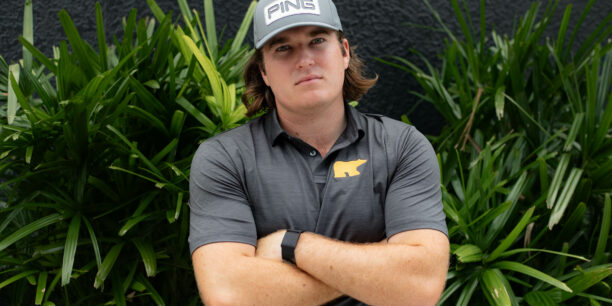Arnold Palmer and Jack Nicklaus at the 1973 Ryder Cup
As the 41st Ryder Cup matches get underway this week at Hazeltine National Golf Club in Chaska, Minn., both the United States and European teams will play with a bit of a heavy heart. Just a few days ago, we lost one of the greatest competitors, ambassadors and influences on the game of golf in Arnold Palmer.
Arnold and I both loved the Ryder Cup, just as we loved representing our country. Arnold was a member of six Ryder Cup teams (1961, ’63, ’65, ’67, ’71, and ’73), and captained two (1963, serving as a playing captain, and ’75).
I played with Arnie on the ’71 and ’73 teams and was a member of the victorious squad he captained in 1975. We were partnered several times.
These special Ryder Cup memories with my good friend stand out now more than ever. Certainly we competed against each other for parts of six decades, but we relished the opportunity to compete alongside each other.
I hope this year’s matches will bring some level of comfort to Arnold’s fans around the world. A moment of silence will be held at this afternoon’s opening ceremonies. Players from both teams will wear pins—fans will get buttons—created for this special occasion that will mention Arnie’s Army.
It is this spirit of sportsmanship that sets the Ryder Cup apart from any other sporting event.
There is no question I have loved the great game of golf since first picking up a club at age 10, but it is competition that has stirred me as much as the game itself. And there was and remains perhaps no confluence of all the elements of competition greater than the Ryder Cup.
First, there is the match-play element: Every hole and every day has a conclusion, and without success, there is no tomorrow. This creates a sense of urgency that can enhance one’s focus and competitive drive. Then, there is the team element: For months each season, it is not just you against a golf course and your own ability, it is you against a field of over a hundred of the world’s finest players. For one week in the Ryder Cup, you have a teammate to rely on and someone who, in turn, relies on you. Competition gives way to camaraderie.
Then, perhaps there is the most important element of all—the honor and privilege of competing for your country. This is an honor I never took lightly. Every two years—actually every year in the case of the United States competing in both the Ryder Cup and The Presidents Cup—we have an opportunity in golf to witness the spirited and unified play of 12 young men, creating a lifetime’s worth of unforgettable images. They say Tour wins are for the record books and majors are for the history books. Perhaps the Ryder Cup is for scrapbooks.
Because of all the aforementioned, I deeply cherish all six of the opportunities I had to represent the U.S. in the Ryder Cup, as well as the two times I served as captain.
My debut in 1969 at Royal Birkdale was a thrilling one for me. Little did I know, however, the ending would be perhaps the most memorable aspect of the week—and one, to my surprise, people have said many years later embodies the sportsmanship that is at the heart of these competitions.
In 1979—two years after then-British PGA President Lord John Derby and I discussed expanding the Great Britain & Ireland team to include all of continental Europe, and bright stars like Spain’s Seve Ballesteros, to enhance the event’s competitiveness—the first U.S. vs. Europe Ryder Cup took place. Since, the Matches have not only been extremely competitive, but Europe also has a two-victory edge from 1979 through 2014.
After my first captaincy in 1983—a thrilling 1-point win at PGA National in my Florida backyard that had me so excited that I kissed Lanny Wadkins’ divot following his wedge shot to a foot on No. 18—the Europeans won in 1985 for their first victory in 28 years. I was then asked to return as Captain in 1987 when the Ryder Cup was being played at my Ohio home course of Muirfield Village Golf Club. With expectations and emotions high, my team played its heart out but we suffered a 2-point loss. Well, suffered is a harsh word. While it was the first European win on U.S. soil, it was probably the best thing that ever happened to the Ryder Cup and its future. I think I was perhaps best equipped to handle such a loss, especially given my attitude over the years toward the Ryder Cup.
As a player and captain, I have maintained a consistent position regarding the competitive spirit of the Ryder Cup. While firmly founded on competition, we can never forget that these matches should always be conducted with utmost sportsmanship, and for the singular purpose of international goodwill and growing the game that Arnold so loved.
Arnold Palmer and Jack Nicklaus at the 1973 Ryder Cup



